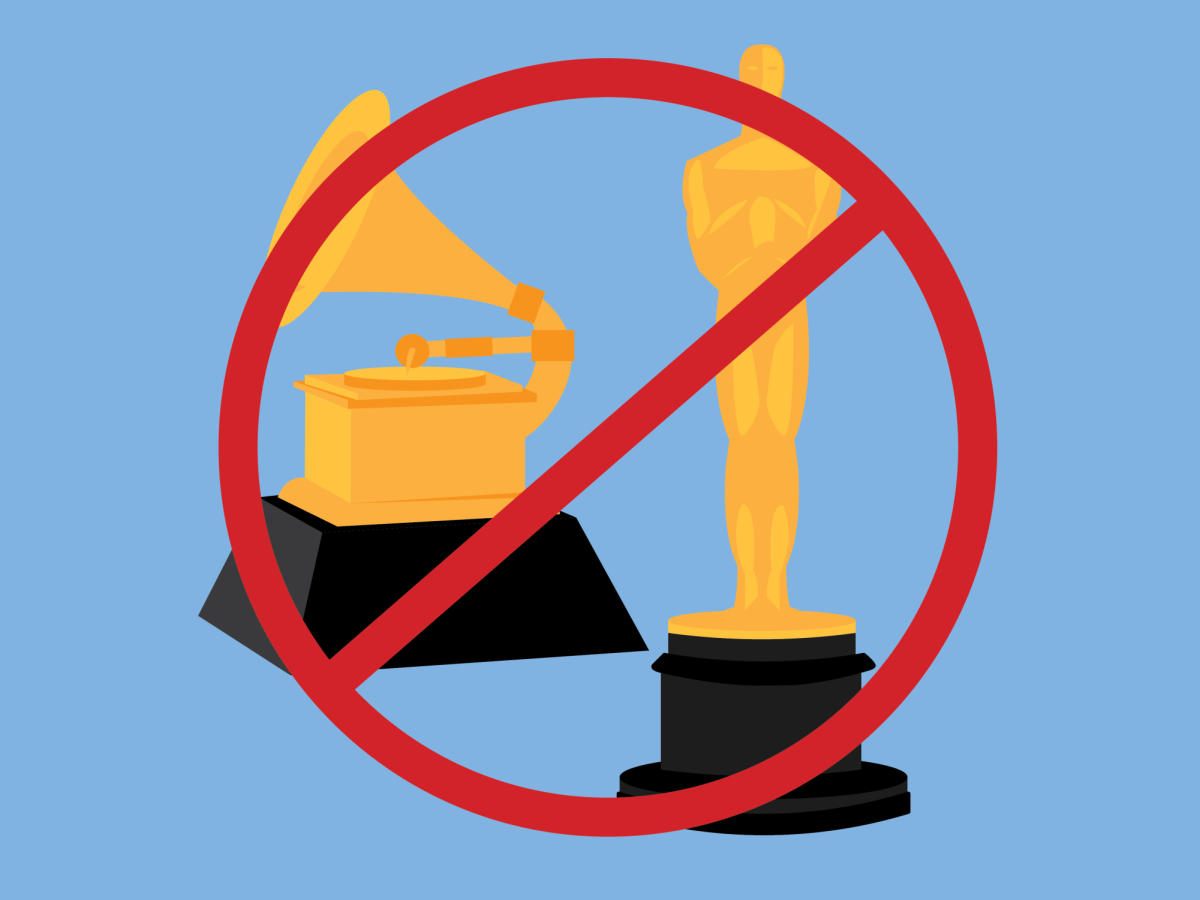Award show season is the highlight of the year for celebrities. It’s the season where they get to dress up in million-dollar gowns and suits, walk the red carpet and present themselves to society. For one night only, they get to be surrounded by the best of the best.
As these celebrities primp and prep for hours, the rest of society sits on their couches, snacks in hand, eagerly awaiting the night before them. We glamorize these events and create hefty societal drama over who we think should win.
These shows are supposed to highlight entertainment’s best and brightest. But still, they not only exemplify elitism but have become an expectation while contributing to the erasure of diversity in filmmaking. This aspect makes me hate award shows, or do I?
As watching movies becomes more expensive and inaccessible, a love-hate relationship surrounds the award shows. While we may not have seen all the nominations, there is still a societal expectation to watch the ceremony.
“Our attitude toward the major award shows, but especially the Oscars,” Huffpost said in an article. “Can be likened to our attitude toward a mandatory school field trip to a municipal water treatment plant: We hope it’ll be tolerable, but are resigned to it being a less-than-ideal way to spend those few hours.”
Growing up, I never watched the Oscars or the Grammys. It was just a regular day in my house. However, recently, I have taken pride in having watched each and every Oscar-nominated movie. However, it has become clear to me that no one else has.
“Even though 569 new movies came out in 2024, the Talker Research survey of 2,000 U.S. adults found that nearly half (48%) haven’t watched any of the ten Best Picture nominees,” StudyFinds said.
Watching a nominated film or listening to each album has become increasingly difficult. The nominees encompass such a wide variety of genres, why should we be expected to see them all? Why should I be expected to watch a horror movie if I hate horror movies, just for an awards show I will most likely have to pay to stream?
This concept doesn’t stop with viewers, but is also within categories. With such a wide variety of films putting them all in one category, such as best picture, is impossible. How can we compare a feminist horror film like “The Substance” with a three-and-a-half-hour masterpiece like “The Brutalist?”
The diversity of films nominated for the best picture category at the 1993 Oscars caused nominee Dudley Nichols to be the first actor to drop out of the ceremony. Nichols believed that each performance nominated was unique and comparing them would be like comparing apples and oranges, two entirely separate things.
“After having warned the Academy months in advance that he would turn the award down on philosophical grounds if he won, the principled actor (Nichols) believed that every dramatic performance was totally unique, with comparison to others being tiresome and futile,” according to Far Out.
Comparing actors, movies, albums and more exemplifies the redundancy of these award shows. While most of society sits on their couches, a panel of unqualified judges compares movies without relation to one another.
While they may be our sneak peek into the lives of celebrities, I think that award shows will maintain a societal expectation we all secretly dread. I know I do.

































































































































































